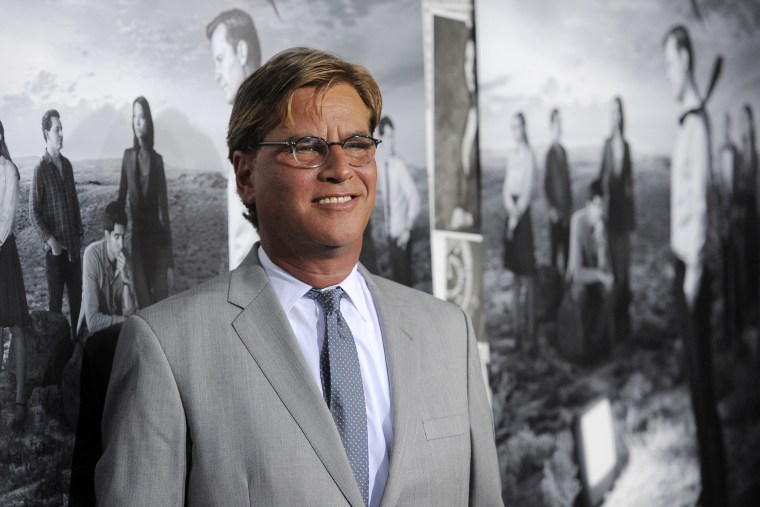HBO’s fictional cable-news series “The Newsroom” on Sunday featured a storyline about campus rape, much to the displeasure of many audiences still stunned by the real-life fallout from Rolling Stone magazine’s backpedaling of its controversial campus rape story.
The HBO series, created by veteran television writer and creator of "The West Wing" Aaron Sorkin, is set at a fictional cable news network called ACN. The most recent episode — which was likely written and filmed before the Rolling Stone story was published — told the story of ACN executive producer, Don Keefer, visiting a young woman at Princeton University who says she was raped. The student started an anonymous website where women who had been assaulted could publicly name their attackers.
WATCH: Aaron Sorkin discusses the final season of 'The Newsroom'
From the beginning of Keefer’s meeting with the young woman, Mary, it’s clear the conversation is not going to go well. When he arrives at her dorm room, Keefer hesitates to close the door while alone with Mary, admitting he’s afraid she might accuse him of rape. While he tries to show sympathy for the student, the newsman berates her for starting the website, arguing that it could ruin the lives of men who are named. After much back and forth debate between the two characters, Mary asks Keefer if he believes her story. He replies that he has also interviewed her alleged attacker, who denies the story, and says that though he found the man “sketchy” and the woman “credible,” he had a “moral obligation” to believe the man’s story rather than the woman who says she was attacked. He then tries to dissuade her from coming on ACN for an interview, saying that she’ll be “slut-shamed.”
That scene has generated substantial outrage across the internet, with many TV critics and feminist advocates panning Sorkin’s indelicate handling of such a sensitive and highly charged topic. The New Yorker’s Emily Nussbaum says it made her “head blow off.” TIME television critic James Poniewozik called Keefer’s lecture “rapesplaining,” and wrote of the episode: “Its arguments about whom to 'believe' in the case of rape accusations were terrible. Its arguments about reporting said accusations were terrible. Its reliance on preachy strawman arguments was terrible.” Todd Van der Werff at Vox.com wrote: "But at the center of the episode's problems was one terrible idea: Aaron Sorkin isn't sure rape victims should be naming their rapists, because somebody somewhere might miss out on a medical school scholarship."
Further stirring the pot, after the episode in question aired on Sunday night, "Newsroom" staff writer Alena Smith tweeted that she had clashed with Sorkin over the campus rape storyline, and he retaliated by kicking her out of the writers room.
The scrutiny on the episode was likely amplified by the fact that its timing eerily coincided with current events. Rape allegations have been in the headlines nearly every week, from the growing number of women alleging they were assaulted by Bill Cosby to the controversy surrounding Rolling Stone’s report of a University of Virginia student who said she was gang-raped.
RELATED: Busting the myth of the 'perfect' rape victim
On Friday, just two days before Sorkin’s campus-rape episode aired, Rolling Stone magazine issued a statement backing away from its bombshell UVA gang-rape story, saying that its “trust in Jackie was misplaced.” The magazine clarified by adding that “these mistakes are on Rolling Stone, not on Jackie."
Writing and reporting about rape and sexual assault is a difficult, complicated matter, one that has been the subject of many debates on journalistic ethics in light of the Rolling Stone debacle. The "Newsroom" episode aired at a time when many in the media are struggling to figure out how to report on rape allegations with sensitivity to the accuser, but still with fairness toward alleged attackers. Sorkin's series typically takes real-life news events and imagines in a fictional setting how a news network would report on it — in Sorkin's view. However, it is a fictional program, and not a work of journalism, which means that Sorkin had the creative freedom to choose the ending to this story, and critics said he handled it poorly, and with little sensitivity to his fictional victim. Libby Hill, a writer at The A.V. Club, sums it up by saying: "Aaron Sorkin ... doesn’t understand how empathy works."
